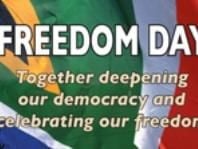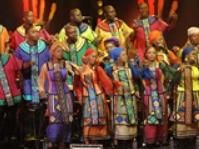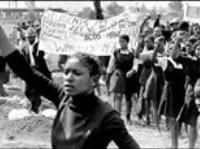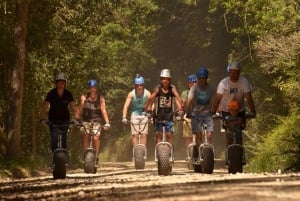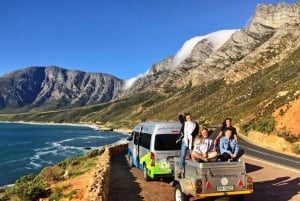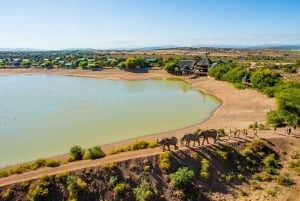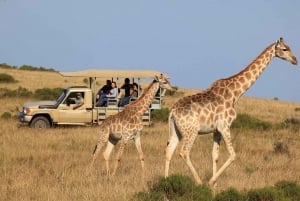Garden Route Public Holidays
The Garden Route and Eastern Cape and indeed the whole of South Africa are very fortunate to have quite a few public holidays in a year, all of which celebrate South Africa's heritage and diverse and exciting culture. Along the Garden Route and Eastern Cape a public holiday is a great time for families and friends to get together and enjoy the great surroundings, celebrate the great country they live in and take part in exciting Garden Route events.
South Africa's Public Holiday dates for 2012 can be found below, as well as a short summary of what some of those South African holidays less well known by others around the world, celebrate.
South Africa's Official Public Holidays 2012:
| New Years Day | 1 January |
| Human Rights Day | 21 March |
| Good Friday | 06 April |
| Family Day | 09 April |
| Freedom Day | 27 April |
| Workers' Day | 01 May |
| Youth Day | 16 June |
| National Women's Day | 09 August |
| Heritage Day | 24 September |
| Day of Reconciliation | 16 December |
| Public Holiday | 17 December |
| Christmas Day | 25 December |
| Day of Goodwill | 26 December |
A Few South African Public Holidays Explained
21 March (Human Rights Day)
South Africa’s Constitution and the Bill of Rights that is contained within it are the cornerstone of democracy in South Africa today.
The Constitution brought about the creation of the SAHRC (South African Human Rights Commission) whose aim is to promote protection, development, attainment and respect for human rights in South Africa. The SAHRC was founded on 21 March 1996, in order to commemorate tragic events of 21 March 1960.
In 1952 a law was passed requiring all Africans to carry at all times, a reference book to ‘prove’ that they were allowed to enter a ‘white area’. Failure to produce the reference book when police demanded was a criminal offence and punishable. The Pan Africanist Congress (PAC) organised an anti-Pass demonstration to start on 21 March 1960. All African men were asked to take part in the demonstration without their pass books and were to take themselves to a police station to be arrested.
Campaigners gathered at police stations in various townships and were mostly quickly dispersed by police. At the Sharpeville police station there was a scuffle a fence was damaged allowing protesters to move forward. The police opened fire, killing 69 people and wounding 180.
In apartheid South Africa the 21 March became known as Sharpeville Day and although not an official public holidays the tragic event was remembered among anti-apartheid movements.
Human Rights Day is a celebration of how far South Africa has come since those days and of how basic Human Rights are now guaranteed by law.
16 June (Youth Day)
Youth Day was also previously known as Soweto Day and commemorates the day in 1976, when on 16 June more than 20,000 pupils from Soweto began a protest march in response to a new law dictating the use of Afrikaans as a language of instruction in secondary schools. The protest, however, was not only against the use of Afrikaans but also against the whole system of education for Bantu youths which was characterised by separate schools, overcrowded classrooms, poor facilities and less than adequately trained teachers.
As a result of this protest there were many clashes with police, and much violence ensued over the following weeks. Approximately 700 hundred people, many of them young people, were killed.
Youth Day commemorates the tragic events of what are also known as the Soweto riots.
27 April (Freedom Day)
South Africa’s Freedom Day commemorates the day the first ever democratic elections were held in South Africa on 27 April 1994.
24 September (Heritage Day)
Heritage Day was established in order to recognise the multi-faceted and diverse aspects of South African culture which exist today. It celebrates South Africa’s historical inheritance, its many languages, its food and creativity as well as just celebrating the land in which we live.
When deciding to make Heritage Day a public holiday the Eastern Cape’s favourite son, Nelson Mandela commented that South Africa’s rich and varied cultural heritage had a profound power to help build the new Rainbow Nation and that this should be celebrated.
16 December (Day of Reconciliation)
The 16 December was originally known as the Day of the Vow during the apartheid era – a day which commemorated a vow the Afrikaaner Voortrekkers took before God in preparation for a battle on 16 December against the Zulus. They promised that should they be victorious, they would build a church, and that they and their descendants would observe the 16 December as a day of thanksgiving.
With the arrival of democracy in South Africa, the 16 December kept its status as a public holiday, however, it new purpose is to celebrate national unity and the fostering of reconciliation and forgiveness amongst South Africans.


